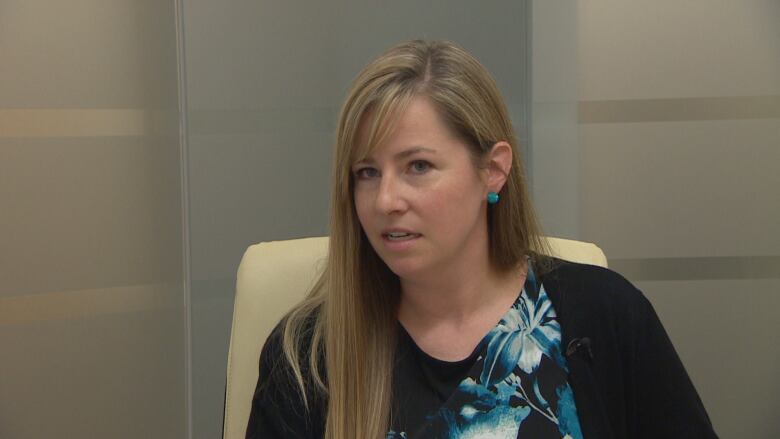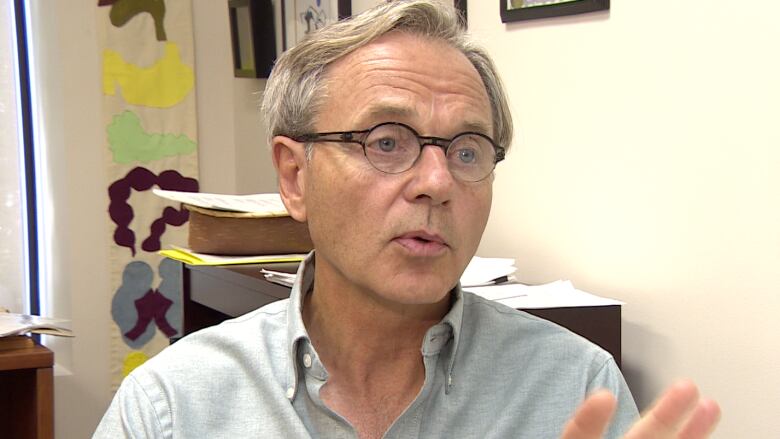Sask. lacks doctors willing to prescribe methadone, opioid therapies, experts say
Nurse practitioners on track to start prescribing methadone

Less than 10 percent of family doctors in Saskatchewan can prescribe a drug that can help those trying to kick an opioid addiction and are struggling with dependence.
Two experts are calling for more family doctors to offer opioidsubstitutiontherapy, which means they can prescribe methadone to patientsor its alternative, buprenoprhone/naxolone a combination drug that goes by the brand name suboxone and is touted as safer.Both drugs help patients cope withwithdrawal symptoms and cravings for opioids.
In order to become a prescriber, doctors in the province must meet certain requirements set out by the college, such as completing a day or two of training.
Every family doctor should prescribe methadone
Doctor breakdown in Saskatchewan
As of March 2018, there were 1,371 family physicians and 1,268 specialists for a total of 2,639 doctors in Saskatchewan.
The College of Physicians and Surgeons says that as of Sept. 12, 2018, 23 physicians were authorized to prescribe methadone for opioid addiction and 47 doctors were authorized to prescribe for both pain and methadone.
The college also lists 55 physicianswho are authorized to prescribebuprenoprhone/naxolone, which is sold under the brand name suboxone.
"I would like to see the number of opioid antagonist therapy prescribers to be the equivalent to the number of licensed [family] physicians here in Saskatchewan," said Julia Bareham, who oversees the prescription review program for Saskatchewan's College of Physicians and Surgeons.
She noted there has been a slow uptick of doctors becoming prescribers of either methadone or suboxone over the past few years, but she wants to see a greater increase.
"Opioid use disorder and substance use disorder is a health condition like any other health condition," Bareham said, addingthat those suffering from it deserve to be able to find treatmentthe same way other patients can be treated for their ailments.
"I think we've got a bit of work to do in terms of the stigma that we still place on individuals who may use drugs in this manner and we need to work toward improving that," she said.
More family doctors prescribing could alleviate wait lists
Dr. Peter Butt, an opioid addictions and treatment expertbased in Saskatoon, said he's encountered patients and families unable to find a doctor to provide them with methadone or suboxone.

He is currently involved in an opioid therapyprogram in Saskatoon operated by the Saskatchewan Health Authority and believes if more family physiciansprescribedopioidantidotes it would alleviate wait lists and build capacity to treat those who come into emergency rooms.
"People need to have access, and they don't," he said.
There are several factors for why more doctors don't prescribe opioid substitute, he said. Besidesthe stigma associated with addiction, Butt cites a lack of education in family medicine as well as the "patchwork" way of dealing with addiction in the provincial healthcare system, from the point of detox to preventing someone in recovery from relapsing.
"There should be no wrong door when people pitch up with a substance use disorder issue. We should be able to refer them, help them get into care and then maintain that care over timeuntil they're doing better," he said.
Butt added that a specialized clinic can first stabilizea user seeking opioid substitute, and then transfer themto a family doctor to continue theircare. He says up to 33 per cent of his clients could be transferred togeneral physicians, making more room for those who have more severe challenges.
In a statement to CBCNews, Minister of Health Jim Reiter said he's committed to ensuring all residents have access to their required health services, but pointed out the college is responsible for supporting and recruiting doctors to becomeprescribers of methadone and suboxone.
He added doctors must go beyond writing a prescription and include having to refer a patient to other support services and manage other dependencies.
Nurse practitioners could fill gap
Nurse practitionersin Saskatchewan could soon start prescribing methadone following a vote back in May by the SaskatchewanRegistered Nurses Association.
Jayne Naylen Horbach, interimexecutive director and registrar, said Thursday that the bylaw will be official as of Friday, but the regulatory scheme is still being developed with the plan being for nurse practitionersto have to undergo some training before becoming a prescribers.
Currently, there are256 nurse practitionersare currently on the registrar, she said, adding the plan would be presented to the association's council later this year or in early 2019.












_(720p).jpg)


 OFFICIAL HD MUSIC VIDEO.jpg)
.jpg)



























































































